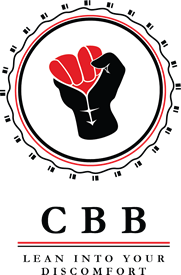
Community Based Block (CBB), Multicultural Community Counseling & Social Justice Education
M.S. in Counseling & LPCC
The Community-Based Block (CBB) Program is a 2-Year, 60-unit Master of Science in Counseling degree, with a concentration in multicultural community counseling, that prepares licensed professional clinical counselors (LPCC).
 The Community-Based Block (CBB) program provides multicultural community counseling
and social justice education that prepares students to become culturally competent
licensed professional clinical counselors (LPCC), while serving individuals and communities
through internships, research, placements and community engagement.
The Community-Based Block (CBB) program provides multicultural community counseling
and social justice education that prepares students to become culturally competent
licensed professional clinical counselors (LPCC), while serving individuals and communities
through internships, research, placements and community engagement.
- 45+ years preparing culturally competent counselors
- Strong social justice commitment to providing mental health and community counseling to underserved communities
- 95% graduation rate
- Over 85% Ethnically Diverse Students throughout the history of the program
- 100% Ethnically Diverse Faculty
- Strong LGBTQIAA+ Focus
- Fulfills the academic requirements for LPCC licensure
- CBB4Life Alumni Association
- CBB graduates serve as:
- Community Counselors
- Clinical Mental Health Counselors
- Community College and University Counselors
- K-12 counselors
What is CBB?
For over 45 years, the CBB Program has prepared counselors to work with individuals and communities. In Fall 2014, the one-year CBB MA Program became a 2-year MS program that prepares students to become Licensed Professional Clinical Counselors (LPCC). The two-year cohort program meets all of the requirements for the 60+ unit Master of Science in Counseling with a concentration in Multicultural Community Counseling and fulfills the California Board of Behavioral Sciences’ requirements for Professional Clinical Counselor Licensure.
CBB prepares multicultural community counselors and advocates with the following 4 core learning objectives:
- Community Counseling Knowledge & Skills
Awareness and knowledge of counseling theories, models, and methods from a multicultural perspective and a transformative paradigm and apply them in counseling practice and research - Multicultural/Multilingual
Conceptualize and integrate multicultural knowledge and experience into community counseling theory, practice, and research - Social Justice & Advocacy
Conceptualize and integrate social justice and advocacy into counseling theory, practice, and research; democratic theory, process, and skills; critical theory, community capital - Self-awareness & Care
Conceptualize and practice self-awareness and personal insight that supports professional growth and development in the interest of clients and communities
The Community-Based Block program seeks to develop:
- the counseling skills of relationship building, process and therapeutic intervention;
- the academic skills of critical thinking, systematic inquiry, program evaluation and effective written and oral communication;
- and the personal growth experiences necessary to enable graduates to use their skills for the benefit of clients.
Our program also seeks to adapt counseling skills to the needs of different populations so as to train truly competent multicultural counselors.
Students are able to gain a unique experience of becoming counselors through live supervision at the Center for Community Counseling and Engagement in City Heights, one of the most diverse communities in San Diego.
The responsibility students assume for their own education helps them develop the proficiencies they will need to become effective change agents in schools, colleges and/or social service agencies.
Sequence of Study
Year 1: Fall
Year 1: Spring
Year 2: Fall
Year 2: Spring
See our Faculty page for information about our faculty and lecturers.
CBB LPCC graduates complete 1 of 3 tracks that prepare them for the following careers:
- Clinical mental health counseling: serve community clinics or private practice
- College counseling: serve community colleges and universities
- K-12 counseling: serve K-12 schools
Important Resources
- Tuition cost
The M.A. 30-unit cost is approximately $15,000, however, unit prices are subject to change. The total cost of enrollment including tuition, books, food, housing, transportation, etc. can vary according to your housing status. Visit the Office of Admissions Estimated Cost of Attendance page for the latest information. - Financial aid
If you need financial aid, remember to submit your FAFSA form between January 1 and the beginning of March.
All courses are eligible for financial aid. Financial aid, scholarships and grants are also available for students who demonstrate need. Contact the SDSU Financial Aid Office and speak to a financial aid officer familiar with loans for special programs.
If you are an out-of-state or international applicant, request CA residency requirements ASAP, so you can qualify for in-state tuition as soon as you possibly can.
Frequently Asked Questions
- Mondays at the Dede Alpert Center in City Heights (where CBB interviews took place)
- Tuesday night is on SDSU campus
- Wednesday is in Barrio Logan (Beckworth Library/
Educational Cultural Complex). - Thursday & Friday at your fieldwork site
Year 1
A cohort of approximately 30 students will take all classes together, all day Monday and Wednesday, with research class on Tuesday night.
Year 2
Year 2 will be specialized according to your focus of study and the group will be split accordingly. During both years, fieldwork hours are required.
Prospective Student Center
619-594-6336
855-594-6336
[email protected]
- Take courses to improve GPA
- Seek therapy for yourself
- Gain experiences in your area of interest related to social justice/counseling
- Visit a class
- Share your interpersonal
challenges, as well as your strengths in
your personal statement (We value authenticity, openness and
honesty) - Get letters of recommendation from people who really
know you and are authentic
NewsMore News
